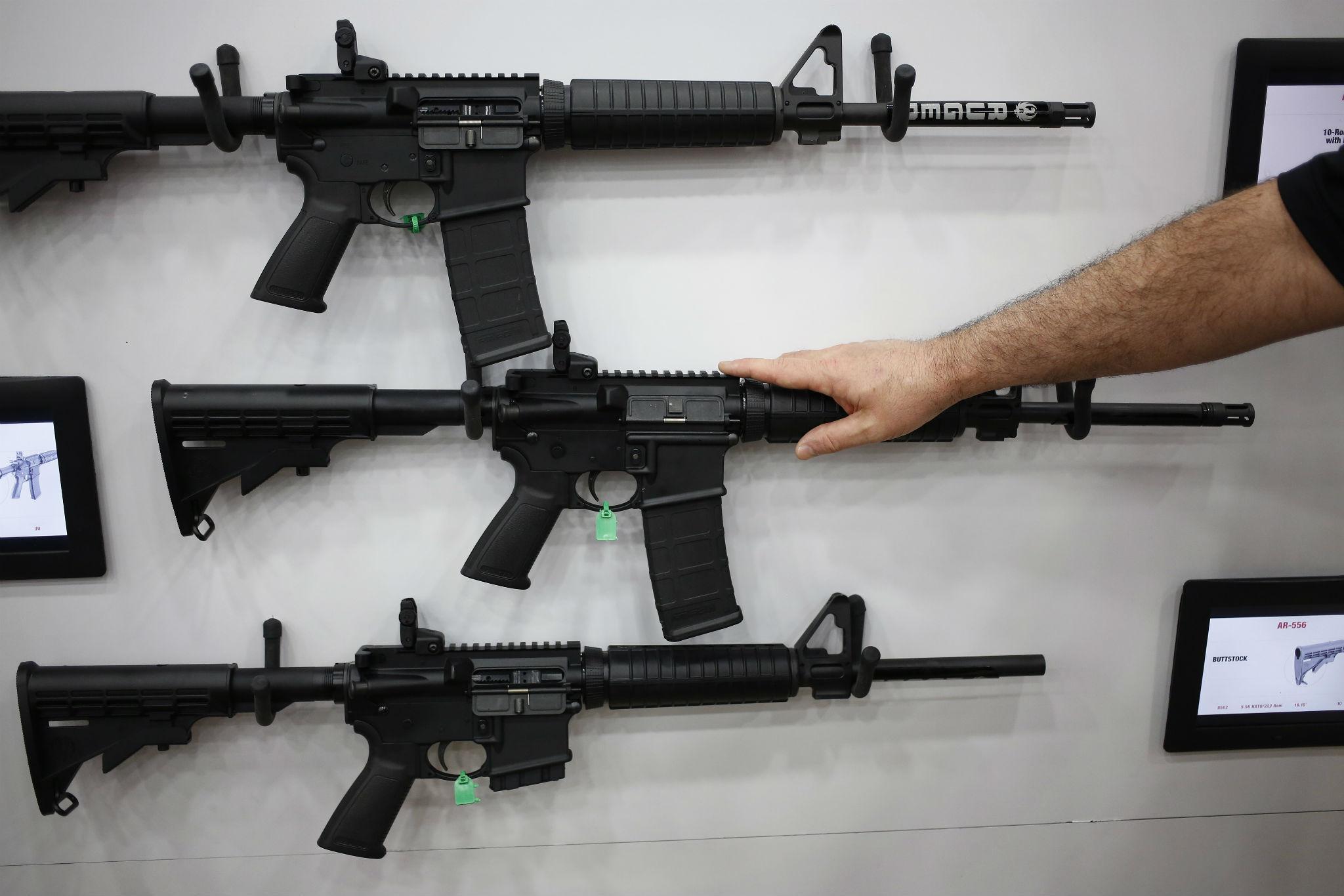Orlando gay club attack: As the US mourns another mass shooting, has anything changed since Sandy Hook?
Polls suggest a majority of Americans support some common sense gun law reforms, but passing such reforms through Congress is another matter

After a gunman killed 26 people, including 20 young children, at Sandy Hook elementary school in Newtown, Connecticut in December 2012, it seemed as if something might at last be done to curb the cycle of mass gun violence in the US. And yet, a package of modest gun law reforms was quashed by the Senate just a few months later, a result that President Barack Obama decried at the time as “shameful”.
Today, with more than twice that number dead in Orlando – murdered using the same AR-15 assault weapon that was wielded by the shooter at Sandy Hook – the path to genuine reform seems little clearer than it did three years ago.
In this case, the issue will undoubtedly be clouded by the spectre of Islamic terror, though that is itself relevant: the attackers who struck Paris last November were forced to source their guns from a European black market that leads back to the Balkans. In the US, mass shooters of every stripe can obtain their weapons easily and legally. The suspects in last year’s San Bernardino shootings, for example, were armed with semi-automatic rifles bought legally despite California’s relatively strict state gun restrictions.
The Orlando shooting was the 173rd US mass shooting of 2016, according to the website MassShootingTracker.org, which counts any incident in which four or more people are shot (including the shooter), whether they are killed or simply injured.

Mother Jones maintains a similar list, but counts only shooting incidents in which four or more people are killed and the motive appears to be indiscriminate murder. Their count for 2016 is a mere three mass shootings – though that, of course, is three too many. The US has a gun homicide rate almost six times higher than Canada, its next-door neighbour. American gun violence is unmatched in the developed world.
Last year, Mr Obama said his failure to pass “common sense gun safety laws” was the greatest frustration of his presidency. In January 2016, he unveiled executive actions intended to close the so-called “gun show loop-hole” by requiring anyone in the business of selling firearms to have a licence and conduct background checks on prospective buyers, regardless of whether they were selling them at a store, at a gun show or online.
The prospects for further reform rest partly on the outcome of the 2016 presidential election. Donald Trump, the presumptive Republican nominee, sought and received the endorsement of the National Rifle Association (NRA). Speaking to the powerful pro-gun lobby group in May, he claimed his Democratic rival, Hillary Clinton, wanted “to abolish the Second Amendment,” the section of the constitution that enshrines the right to bear arms.
Ms Clinton has said no such thing, but she has promised that, as President, she would “take on the gun lobby and fight for common sense reforms to keep guns away from terrorists, domestic abusers and other violent criminals.” Even if Democrats win back the Senate in November, she would only have half a chance of passing such reforms through a House led by Republicans, who often appear motivated by maintaining their NRA “A” ratings on gun rights.
Polls suggest a majority of people in the US support measures such as background checks, a federal gun purchase database and a ban on assault-style weapons such as the AR-15. Some states have tightened their gun laws in recent years, though others have relaxed them – and, in the absence of federal action on the issue, guns can still cross state lines with ease.
Speaking at a televised town hall event in Indiana last week, Mr Obama again expressed his frustration on the issue, noting that Congress has even prevented the US Centres for Disease Control from studying gun violence as a public health problem.
He also explained that the absence of gun safety laws allowed potential terrorists to acquire weapons unhindered. “I’ve got people who we know have been on Isil websites living here in the United States,” he said. “We’re allowed to put them on the no-fly list. But because of the National Rifle Association, I cannot prohibit those people from buying a gun.”
The US has more privately owned guns than any other nation on Earth: in fact, there are more privately owned guns in America than there are adult Americans. Taking those guns away is not plausible. Regulating them, however, ought to be.
Join our commenting forum
Join thought-provoking conversations, follow other Independent readers and see their replies
Comments
Bookmark popover
Removed from bookmarks